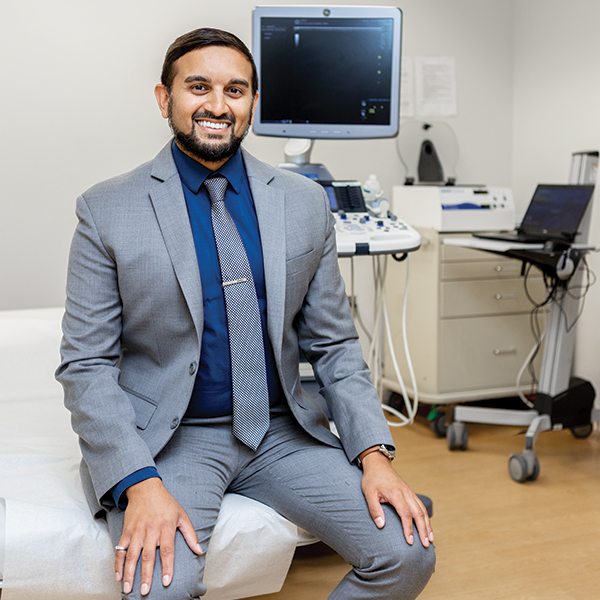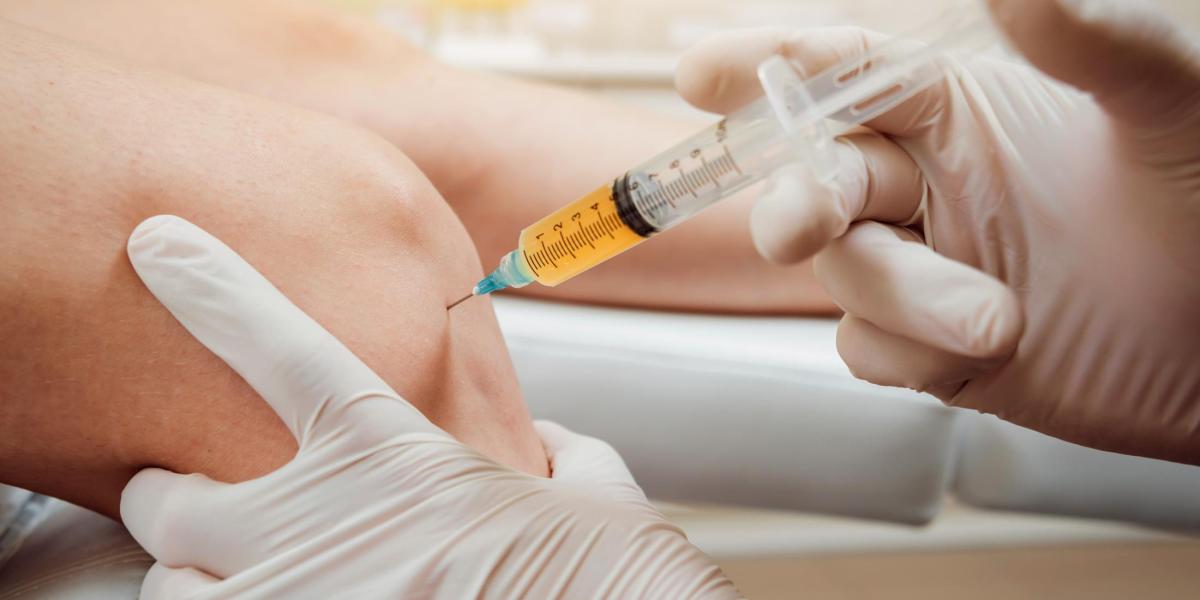Partner Content
“The potential for this innovative treatment to decrease pain and increase function is really compelling for me.”
Whether you’re an athlete, labor worker, or have a history of orthopedic injury, chronic pain can negatively affect your daily activities, disrupt sleep, and even cause depression. The good news is, there’s an innovative procedure using the body’s own healing powers that can provide long-term pain relief when traditional methods no longer work.
To find out more about this unique treatment, we spoke with Idris Amin, MD, from University of Maryland Orthopaedics.
What is regenerative medicine, also known as orthobiologics?
Regenerative medicine addresses the underlying root causes of injuries and pain, not just the outward symptoms. These procedures work by activating the healing processes our bodies naturally go through when we are hurt, and enhance their effectiveness.
How did you become interested in this clinical specialty?
I’m fellowship-trained in sports medicine and treat a wide range of musculoskeletal disorders for all types of patients, from the well-trained athlete to the weekend warrior and casual jogger. The field of orthobiologics has been around for more than twenty years and has grown rapidly in the past decade, fueled by exciting new research and development of new procedures. The potential for this innovative treatment to decrease pain and increase function is really compelling for me. Tell us about the regenerative medicine procedures offered. The most commonly known procedure is Platelet-Rich Plasma (PRP). Platelets are derived from our blood and are packed with proteins which stimulate growth and healing. When injected into the injury site, platelets provide nourishment and signal the body to bring in other healing cells. PRP can be helpful for many orthopedic conditions, including tendonitis and arthritis.
Another common procedure is Prolotherapy. This is a mixture of sugar, water, and numbing medication. When combined, they act as an irritant stimulating the body to bring in healing cells to repair the problem at the injury site. Prolotherapy also targets and destroys some of the pain-causing signals. Patients suffering from arthritis, tendon or muscle strains, and joint or ligament sprains, may find relief from prolotherapy.
Who is a good candidate for regenerative medicine?
Patients with long-term chronic pain that has not responded to conventional treatment. For instance, patients with arthritis, long-term sports injuries, and tendon injuries that have not healed within three months.
How should patients prepare for their treatment?
It’s recommended patients drink plenty of water, follow a healthy diet, and avoid certain pain medications, like NSAIDs – Ibuprofen or Aleve, for at least a week. This will help maximize success from the procedure.
How many orthobiologics sessions are usually needed?
Depending on the problem, one treatment session may be enough to see positive results. A follow-up appointment is scheduled for six to eight weeks after the procedure, where we discuss the rehabilitation program further. At completion of the program, about three months post-procedure, we determine if additional treatments are needed.
Tell us about the recovery process.
Patients may experience increased pain for about a week, but the level of pain is usually mild and manageable without pain medications. I typically advise my patients to take things easy after the procedure, and not plan any strenuous activities.
How is University of Maryland unique in their approach to regenerative medicine?
Our understanding and involvement in research related to orthopedic uses for orthobiologics is unique for an academic medical center in this region. I believe it is important for patients to go to a provider they can trust, and one that is up to date on this constantly evolving field of medicine.
MEET OUR EXPERT:

Idris Amin, MD
Assistant Professor of Neurology and Orthopaedics, University of Maryland School of Medicine
Physiatrist & Sports Medicine Specialist
To schedule a Regenerative Medicine consultation in Columbia or Downtown Baltimore, please call 410-448-6400.

